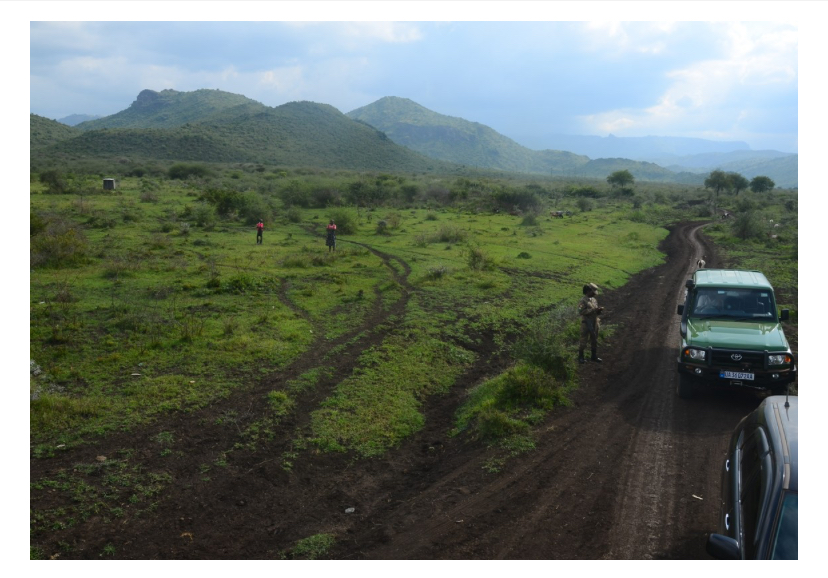By Fidel Boy Leon
Recognising that it is better to move than to be moved by disaster, the Government of Uganda, through the Office of the Prime Minister, is taking proactive steps to save lives.
The government is preparing to resettle 12,031 households from seven districts in the Elgon sub-region, moving them away from the constant threat of deadly landslides.
The Cabinet has set up an inter-ministerial committee, chaired by the Prime Minister Rt. Hon. Robinah Nabbanja with Minister of Lands, Housing and Urban Development, Hon. Judith Nabakooba delegated to steer the committee’s work in a bid to fast-track the relocation process.
A technical field verification report on land earmarked for both the MASDAR Solar Project and the resettlement exercise was tabled and discussed.
The Elgon sub-region has endured repeated landslides for decades, particularly during the heavy rains that sweep across the slopes each year. Districts such as Bududa, Manafwa, Bulambuli, Sironko, and Kapchorwa have been hit hardest, with entire villages buried under soil and rock.
On 1 March 2010, heavy rains triggered a catastrophic landslide in Nametsi, Bududa. Estimates vary, with at least 300 confirmed dead. In October 2018, a major landslide struck Bukalasi, Bududa, after days of heavy rain, leading to at least 51 deaths. The landslide impacted thousands across 13 villages, displacing about 858 individuals and affecting roughly 12,000 people.
The Uganda Red Cross estimates that thousands in the high-risk zones live under the constant threat of being swept away.
Scientists link the high frequency of landslides to a combination of steep terrain, heavy rainfall, and widespread deforestation, which weakens soil stability. With climate change intensifying rainfall patterns, experts warn that the risk will only grow, making relocation a matter of survival rather than choice.
Davis Mwenyi, Commissioner for Relief, Disaster Preparedness and Management, said the government has received offers of land from lowland communities that are safe from landslides.
“Several pieces of land have been earmarked to resettle people who are prone to disasters, specifically landslides in the seven districts of the Elgon sub-region, so that we don’t lose more lives,” Mwenyi explained.
The main resettlement sites are in Bulambuli and Kween districts. However, given the size and spread of the displaced population, the government plans to acquire multiple parcels to avoid overcrowding and ensure sustainable service delivery.
Parcels under consideration include, Plot 100, Block 4, Bulambuli (Amore land), Plots 197, 184, and 196, Block 4, Bulambuli. FRV MBA 236 Folio 2, Plot 458, Block 4, Bulugunya village — though this lies entirely within a gazetted wetland and Ramsar site, making it unsuitable. Plot 756, Block 2, Cheptuya village, Kween district.
Alfred Chelimo, LC III Chairperson of Girig, said the move would bring life and development to his area:
“We welcome the government’s intervention in settling our brothers and sisters from disaster-prone areas. Girig is sparsely populated, with just 8,000 people and vast land. When the government brings these people, it will help develop our area.”
Some landowners have already expressed willingness to sell land to the government. John Bosco Sebere, son of one of the owners, said:
“My father decided to sell his land to help develop the area by establishing social services such as water, roads, health facilities, and schools.”
During a recent meeting at the Office of the Prime Minister, Eng. Hillary Onek, Minister for Relief, Disaster Preparedness and Refugees, stressed the urgent need to act.
It was resolved that the technical team should immediately go on the ground to finalise land purchases and begin resettlement.
While land in wetlands is ruled out under the Ramsar Convention, which protects wetlands of international importance, officials say the lowland parcels in Bulambuli and Kween offer a safe, habitable alternative.
As the proverb warns, “A wise man builds his house on rock, not on sand.” For the people of Elgon’s high slopes, moving to the lowlands could mean the difference between a safe tomorrow and another season of tragedy.


